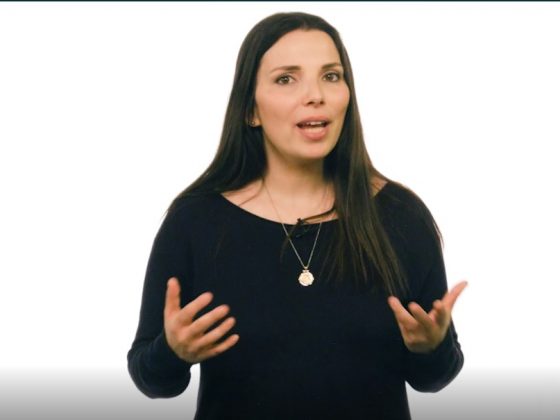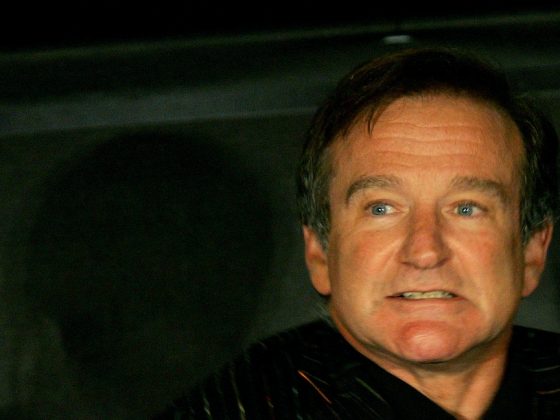Entire countries are now looking for solutions, but they fail to recognize the underlying mechanism. A “depression” needs to be fulfilled – not muted.
What Causes Depression?
When UK Prime Minister, Theresa May, learned that 10% of her citizens are lonely, she appointed the first ever minister of loneliness.
What May called “the sad reality of modern life” is, in fact, another major contributor to the global depression epidemic which is spiraling out of control. In 2010, the World Health Organization predicted that depression will be the 2nd leading cause of illness and disability worldwide by 2020. But in 2017, WHO already declared depression the 1st cause, indicating a phenomenon that spreads faster than we know how to contain.
Family doctors now consider depression a modern day norm, and anti-depressants their normative treatment. Researchers define the problem through a set of chronic symptoms such as sadness, low energy, loss of interest, loss of sexual drive, insomnia, suicidal tendencies, and more.
But what is the source of these symptoms? What do they point to? And why does it happen to different kinds of people everywhere in our time? What makes them feel so demotivated, helpless, purposeless, and empty, to the point where many decide to put an end to their lives?
I see a developmental trend beneath the symptoms. There’s a deeper reason that drives humanity’s exponentially spreading depression, and it has to do with the inner workings of human nature and how it evolves.
“When UK Prime Minister, Theresa May, learned that 10% of her citizens are lonely, she appointed the first ever minister of loneliness.”
What Made Us Lose Our Appetite for Life?
Behind the scenes of human experience is the evolution of human desires. It’s the driving force behind everything we go through as individuals and as a species. Our desire is constantly evolving beneath the surface, shaping human experience. It evolves from bodily-animalistic desires like food, sex, and shelter to human-social desires such as money, honor, power, and knowledge. At every stage of development, the dominant desires organize our lives, form our societies and shape the spirit of the time.
In the 20th century, our desires mostly drove us to seek a comfortable and prosperous material life. We set our sights on things like developing a career, building a family, buying a house, having some savings, travelling the world, acquiring material possessions, enjoying culture and so forth. Human beings saw the above as sources of joy and pleasure in their pursuit of happiness.
But something happened around the 1970-80s. The evolution of human desire entered a new level, and people began to form a demand for a qualitatively different kind of fulfillment: finding the meaning of life itself and our purpose as human beings.
However, that does not mean that most people can put their finger on this desire and understand the fulfillment it craves. What they feel is simply a devastating sense of emptiness that grays out everything else, a void that sucks everything else into it. Thus, all the pleasures they are familiar with lose their appeal, and no longer inspire hope for happiness. This is the underlying mechanism for the global trend of depression.
Seeing the global depression phenomenon as a symptom of human evolution explains why it appears in people from all classes, cultures, and nations. Whether they are rich or poor, businesspeople or housewives, young or old, across the globe.
“There’s a deeper reason that drives humanity’s exponentially spreading depression, and it has to do with the inner workings of human nature and how it evolves.”
Depression Is a Void We Can’t Fill
Depression, as its names implies, is a lack we don’t know how to fulfill, because when it comes to the meaning and purpose of life, humanity doesn’t have tangible answers. This is why none of the treatments we offer are actually designed to fill the void – they only mute the pain, temporarily.
Pharmaceutical companies make people dependent on “anti-depressants” which are no more than sophisticated pain-relievers. Depression therapists provide temporary relief by training people to shift their focus away from the emptiness. In parallel, religions and belief systems teach people to have faith instead of expecting tangible fulfillment.
But as the desire for life’s meaning and purpose continues to awaken in masses of people, it ushers in the next phase of human evolution. Sooner or later, we will have to stop distracting ourselves from it and learn how to develop and fulfill it in practice.
The Key Is That We Are Wired to Connect
The global depression epidemic essentially tells us that the current level of human experience is beginning to feel tasteless and pointless, and we have to rise to a whole new level of experience.
The newly developing and unfamiliar desire directs us to find connection with the source of life. This is a force that is beyond our individual selves, and the way to establish contact with it is through a deeper level of connection between us. In other words, human connection is the key, or the entrance, to a new dimension of human experience, where we feel connected to each other through the natural life source that connects and binds all of nature.
It is not by chance that in the last few decades, many fields of research find that human beings are naturally wired for human connection, and when they activate this natural mechanism they become healthier and happier.
However, I’m saying that it doesn’t end there. If we go deeper into our inherent wiring, where we begin to sense our innate connection as a human species, we begin to find resonance with a deeper force of connection in nature, and the connection with that natural binding force gives the sense of meaning and purpose in life. Metaphorically, think of what a cell in your body would feel on its own versus its sense of meaning and purpose when it gains connection with the whole body.
This isn’t mysticism or some intangible theory. The fact is that every child starts asking about the meaning of life around the age of 5, and every human is a social creature, nourished and shaped by connection with others. What we fail to see is that by a deeper connection between us we find contact with our life’s source and that gives us the sense of meaning, purpose, and happiness we crave. It’s that simple.
“People feel a devastating sense of emptiness that grays out everything else, a void that sucks everything else into it. All the pleasures they are familiar with lose their appeal, and no longer inspire hope for happiness. This is the underlying mechanism for the global trend of depression.”
People Felt This Before and Developed a Method
Since ancient times, there were individuals who felt the desire for life’s meaning before the rest of humanity. Rather than being distracted by their phones or TVs, they studied that desire, learned how it evolves and how to fulfill it through the practice of deep human connections. The authentic methodology they have developed was later called “Kabbalah,” and it had nothing to do with red strings, holy waters or similar misconceptions you may have heard of.
As someone who started as a scientist, and being engaged in this wisdom for over 40 years, I don’t intend to offer any temporary relief to the depression epidemic. In fact, I’m saying openly and honestly that it won’t go away. We will see more and more countries looking for solutions on a nationwide scale. It will continue until we understand our evolution as humans, and see that it’s not “the cancer of the soul” – but rather the labor pains of the soul.
However, you don’t need to be overtaken by depression in order to explore the meaning and purpose of life. If you feel this desire within you, you’re welcome to experience what happens when you develop it.












